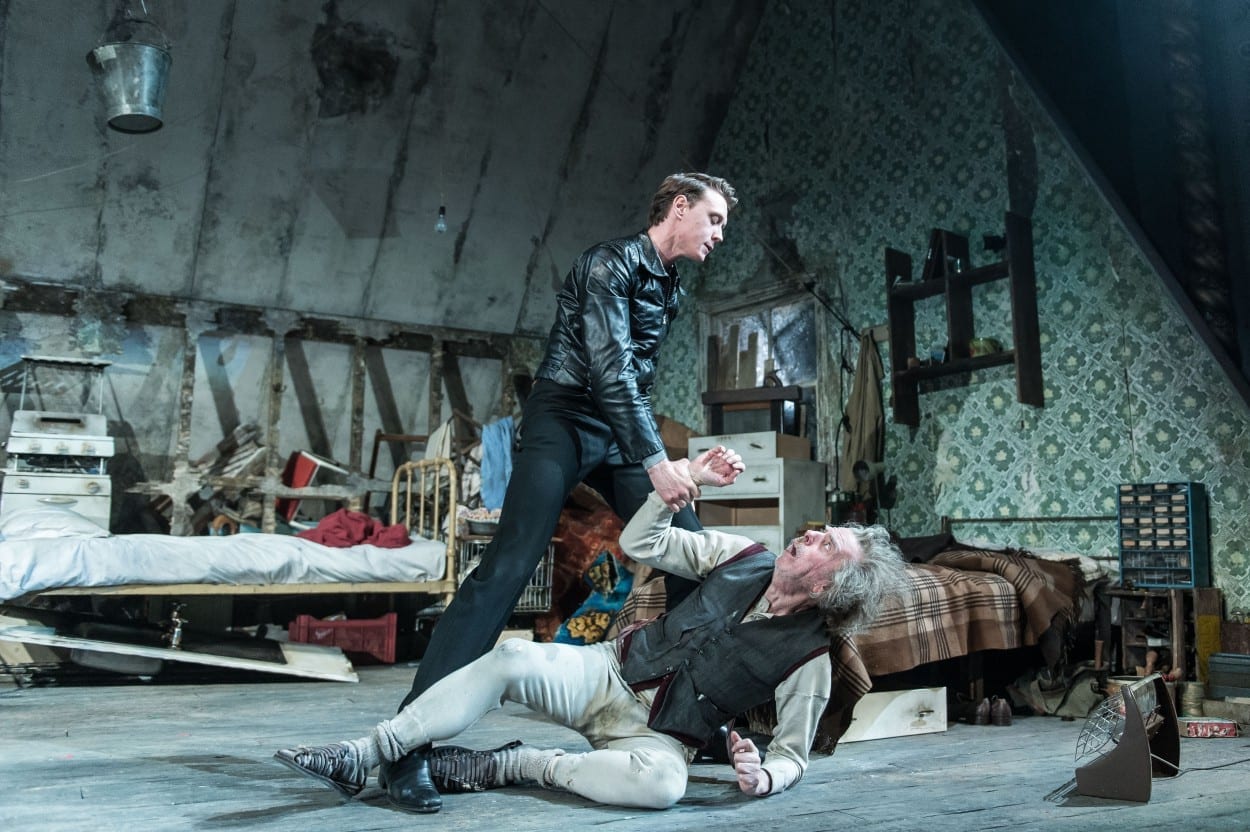Being in the unique position of a Young Reviewer who had not yet had the chance to watch a Harold Pinter play, I was excited to attend the latest Old Vic production ‘The Caretaker’ starring Timothy Spall, Daniel Mays and George MacKay. ‘The Caretaker’ is one of Pinter’s most famous plays and is set in 1950s London where a carpenter with a tragic history of mental illness and an inability to finish any project he sets himself, takes in a quick-tempered and talkative tramp played by Timothy Spall.
The set, designed by Rob Howell, is well envisaged and implemented, reflecting the fragmented personalities of the characters with bric-a-brac scattered across the stage. The movement of the golden Buddha around the room throughout the play before the climactic moment of its destruction by Mick is emblematic of the spiritual desolation of the play.
Spall, known to most younger audience members as Peter Pettigrew in Harry Potter, produces a remarkable performance, even more impressive considering this is his first return to the stage after an absence of almost two decades. Spall is oftentimes simultaneously captivating and repulsive, his wild mane of grey hair and bulging eyes play well with traditional homeless stereotypes, but over the course of the lengthy 3-hour running time, Spall explores the role in sufficient depth to leave the audience with the impression that of the three, it is the tramp who is the least disturbed but the most devious. This is not to detract from the greatly impressive performance of George MacKay as Mick whose bristling physicality is palpable and often unsettling. He is also excellent at delivering some of the play’s best bleakly funny moments.
Daniel Mays produces a similarly solid performance as Aston and it is through this character that the most complex issues about illness and relationships in the play are raised. It is perhaps worth considering the socio-political context in which this play was written as it was in a time when the country was still in a stage of healing from the extreme violence of WWII and, more importantly, the treatment and diagnosis of mental illness was still not well understood. However, regardless of the sources of the underlying frustration and angst prevalent throughout the play, the audience is certainly left with an uncomfortable sensation by the end. The play is described in the programme notes as ‘darkly comic.’ ‘The Caretaker’ is certainly not a comedy, but as an exploration of the darkest parts of the human psyche, this play is a resounding success.

